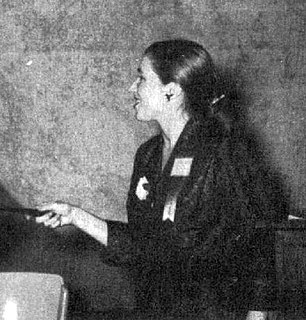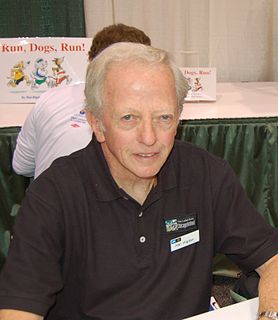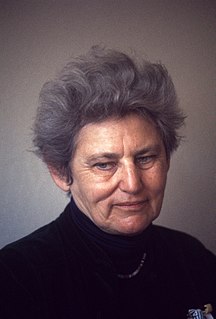A Quote by Julian May
Science Fiction will never run out of things to wonder about until the human race ceases to use its brain.
Related Quotes
As a result of reading science fiction when I was eight, I grew up with an interest in music, architecture, city planning, transportation, politics, ethics, aesthetics on any level, art...it's just total! It's a complete commitment to the whole human race on all the Earth. That's what science fiction is about.
There are certain kinds of people who write science fiction. I think a lot of us married late. A lot of us are mama's boys. I lived at home until I was 27. But most of the writers I know in any field, especially science fiction, grew up late. They're so interested in doing what they do and in their science, they don't think about other things.
My friend Ian Hagemann, a regular at Wiscon, once said on a panel that when he reads science fiction futures that are full of white people and no one else, he wonders when the race war happened that wiped out the majority of the human race, and why the writer hasn’t mentioned such an important plot point.
Who are we? And to me that's the essential question that's always been in science fiction. A lot of science fiction stories are - at their very best - evocations of that question. When we look up at the night sky and wonder, "Is there anyone else out there?" we're also asking who we are we in relation to them.
'Who are we?' And to me that's the essential question that's always been in science fiction. A lot of science fiction stories are - at their very best - evocations of that question. When we look up at the night sky and wonder, 'Is there anyone else out there?' we're also asking who we are we in relation to them.
It had also been my belief since I started writing fiction that science fiction is never really about the future. When science fiction is old, you can only read it as being pretty much about the moment in which it was written. But it seemed to me that the toolkit that science fiction had given me when I started working had become the toolkit of a kind of literary naturalism that could be applied to an inherently incredible present.
Science fiction is a weird category, because it's the only area of fiction I can think of where the story is not of primary importance. Science fiction tends to be more about the science, or the invention of the fantasy world, or the political allegory. When I left science fiction, I said "They're more interested in planets, and I'm interested in people."



































